Y6 The Boy Who Cried Wolf
£3.00
KS2 National Curriculum:
✓ Identifying cause-effect structure within the fable
✓ Retelling the story in a modern context
✓ Creating dialogue and events that align with the moral
✓ Discussing consequences and trust
Activities in this lesson include a quick summary of the key features of fables, reading the full text of The Boy Who Cried Wolf, answering higher and lower order questions based on this fable and writing a modern version of this fable.
There is a five-minute evidence-based CPD activity at the end of this lesson which will develop classroom teachers’ skill set. This CPD consists of a research extract on peer assessment with a five-minute activity based on this extract.
Description
Recommended Year Group: Year 6
Focus: Cause and effect in storytelling and modern interpretation
Skills Developed:
• Identifying cause-effect structure within the fable
• Retelling the story in a modern context
• Creating dialogue and events that align with the moral
• Discussing consequences and trust
📘 National Curriculum Links:
• Reading – Comprehension: Understand consequence and story structure
• Writing – Composition: Rewrite fable with original voice and updated setting
• Spoken Language: Use partner discussion to clarify intent
• Thinking and Learning: Creativity, adaptation, peer assessment
These evidence-based learning (EBL) lessons are based on classroom practice that has been proven, by research, to maximise thinking, learning and attainment. From an extensive review of educational research, we identified the eight key classroom thinking and learning skills that were common across these research papers. We named these eight key skills “EBL skills”.
EBL skills have been proven by research to maximise learning because they combine the most productive thinking skills with the most effective learning behaviours. Each of our evidence-based learning lessons uses the English curriculum as a framework through which the eight EBL skills are delivered.
Teachers also have the opportunity to add to their own skill set or refresh their existing skills with our five-minute CPD activity, based on one of the EBL skills used in this lesson.
The skills in bold below are the EBL skills developed in this Fables lesson. Click on each skill to learn more about that skill.
- Collaboration
- Thinking Skills
- Peer Assessment
- Peer Teaching
- Self-Assessment
- Metacognition
- Self-Regulation
- Independent Learning
1 review for Y6 The Boy Who Cried Wolf
Only logged in customers who have purchased this product may leave a review.
Related products
-

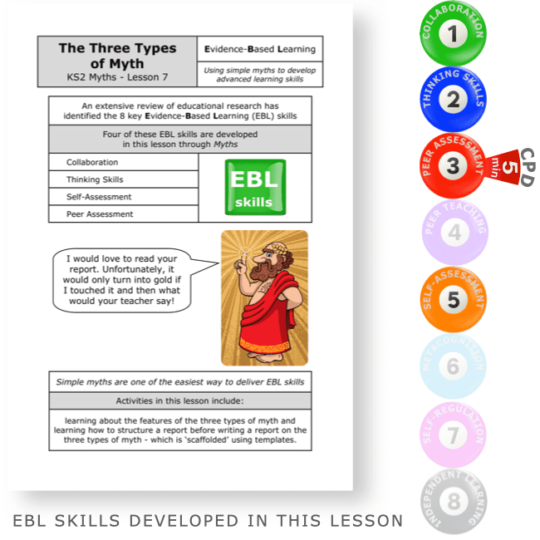
Y5 The Three Types of Myth
£3.00 Add to basket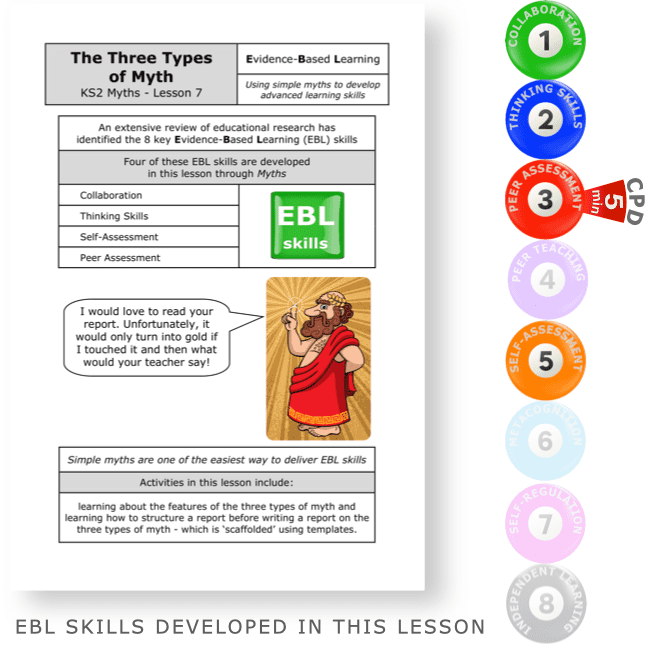 £3.00Add to basket
£3.00Add to basketKS2 National Curriculum:
✓ Identifying characteristics of explanation, moral, and quest myths
✓ Analysing short examples and matching them to myth types
✓ Writing a simple explanation and short comparison
✓ Creating a mini-report using scaffoldingActivities in this lesson include learning about the features of the three types of myth and learning how to structure a report before writing a report on the three types of myth – which is ‘scaffolded’ using templates.
There is a five-minute evidence-based CPD activity at the end of this lesson which will develop classroom teachers’ skill set. This CPD consists of a research extract on peer assessment with a five-minute activity based on this extract.
VIEW -


Y6 Science Fiction is Alien to me
£3.00 Add to basket £3.00Add to basket
£3.00Add to basketKS2 National Curriculum:
✓ Structuring narrative writing; using descriptive language and varied sentence structures.
Activities in this lesson include a reminder of the features of science fiction stories, a step-by-step guide to structuring a science fiction story (which uses guided questions), using adjectival phrases and finally, writing a science fiction story.
There is a five-minute evidence-based CPD activity at the end of this lesson which will develop classroom teachers’ skill set. This CPD consists of a research extract on peer assessment with a five-minute activity based on this extract.
VIEW -
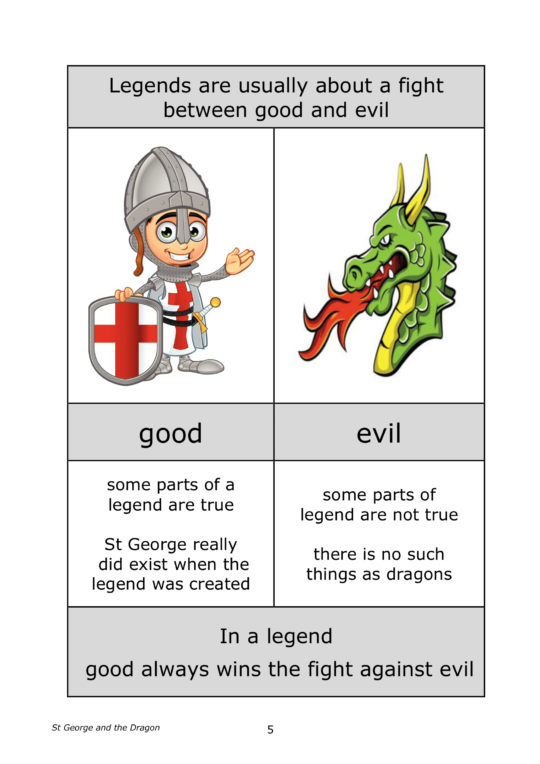
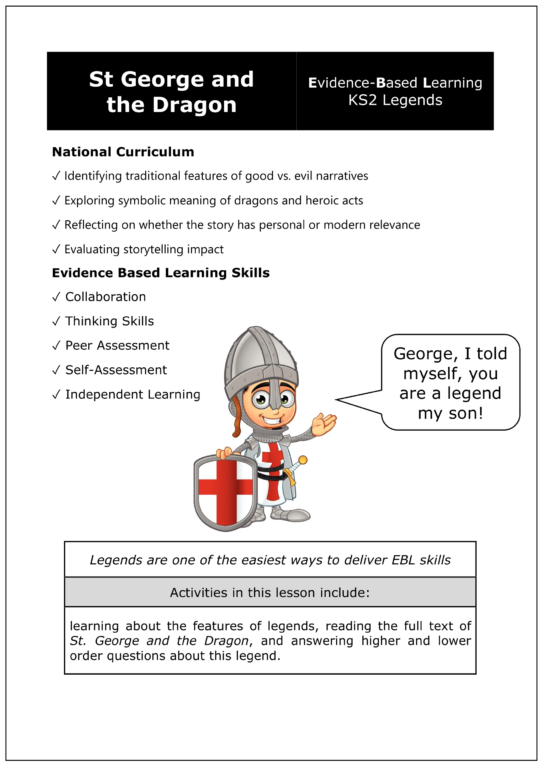
Y5 St George and the Dragon
£3.00 Add to basket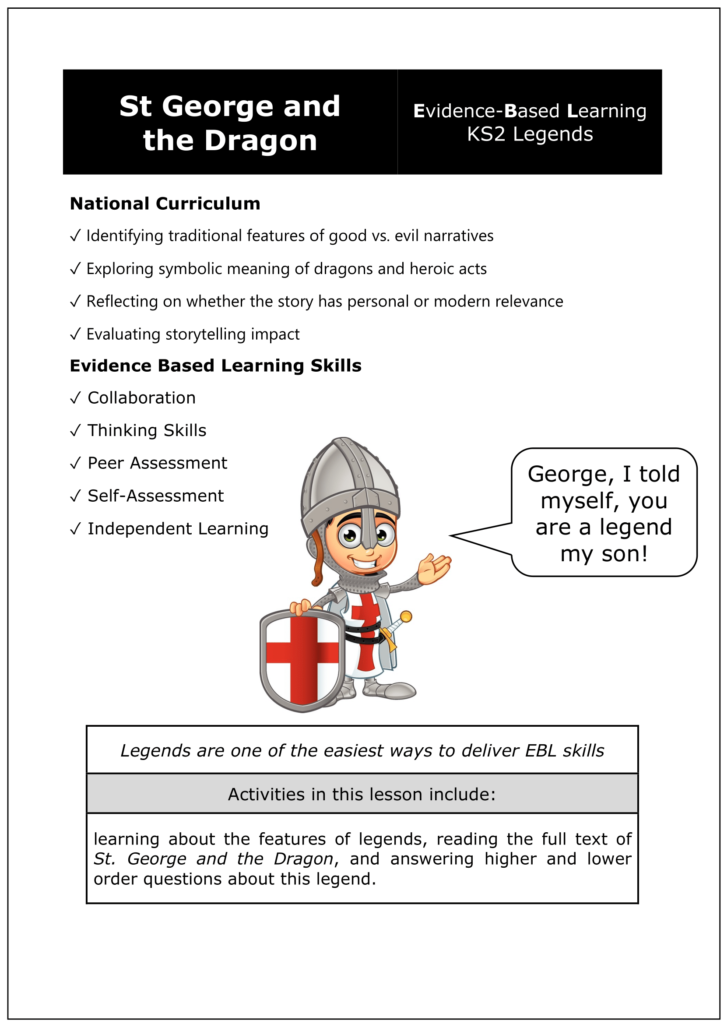 £3.00Add to basket
£3.00Add to basketKS2 National Curriculum:
✓ Identifying traditional features of good vs. evil narratives
✓ Exploring symbolic meaning of dragons and heroic acts
✓ Reflecting on whether the story has personal or modern relevance
✓ Evaluating storytelling impactActivities in this lesson include learning about the features of legends, reading the full text of St. George and the Dragon, and answering higher and lower order questions about this legend.
There is a five-minute evidence-based CPD activity at the end of this lesson which will develop classroom teachers’ skill set. This CPD consists of a research extract on peer assessment with a five-minute activity based on this extract.
VIEW -
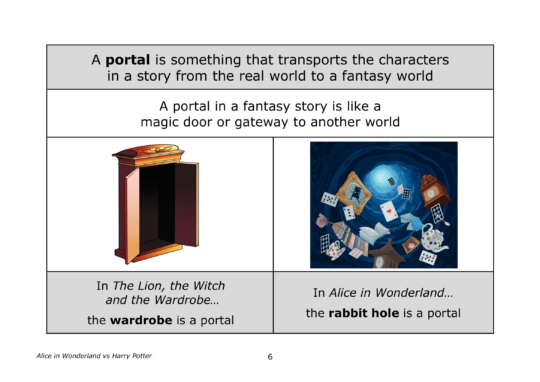

Y6 Alice in Wonderland vs Harry Potter
£3.00 Add to basket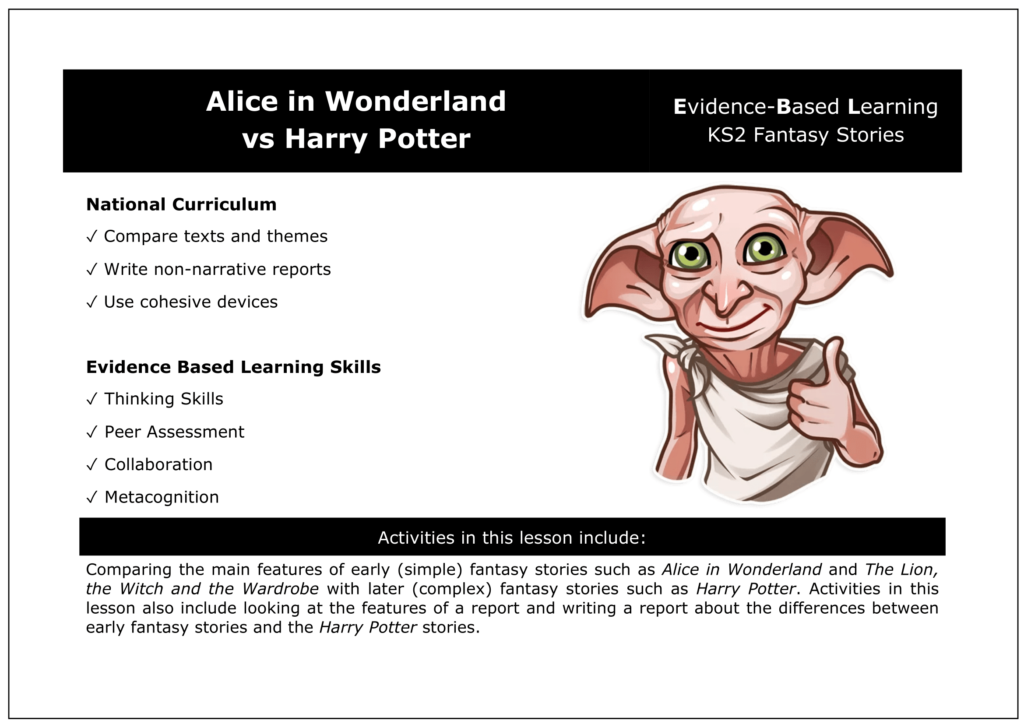 £3.00Add to basket
£3.00Add to basketKS2 National Curriculum:
✓ Compare texts and themes
✓ Write non-narrative reports
✓ Use cohesive devicesActivities in this lesson include comparing the main features of early (simple) fantasy stories such as Alice in Wonderland and The Lion, the Witch and the Wardrobe with later (complex) fantasy stories such as Harry Potter. Activities in this lesson also include looking at the features of a report, and writing a report about the differences between early fantasy stories and the Harry Potter stories.
There is a five-minute evidence-based CPD activity at the end of this lesson which will develop classroom teachers’ skill set. This CPD consists of a research extract on peer assessment with a five-minute activity based on this extract.
VIEW

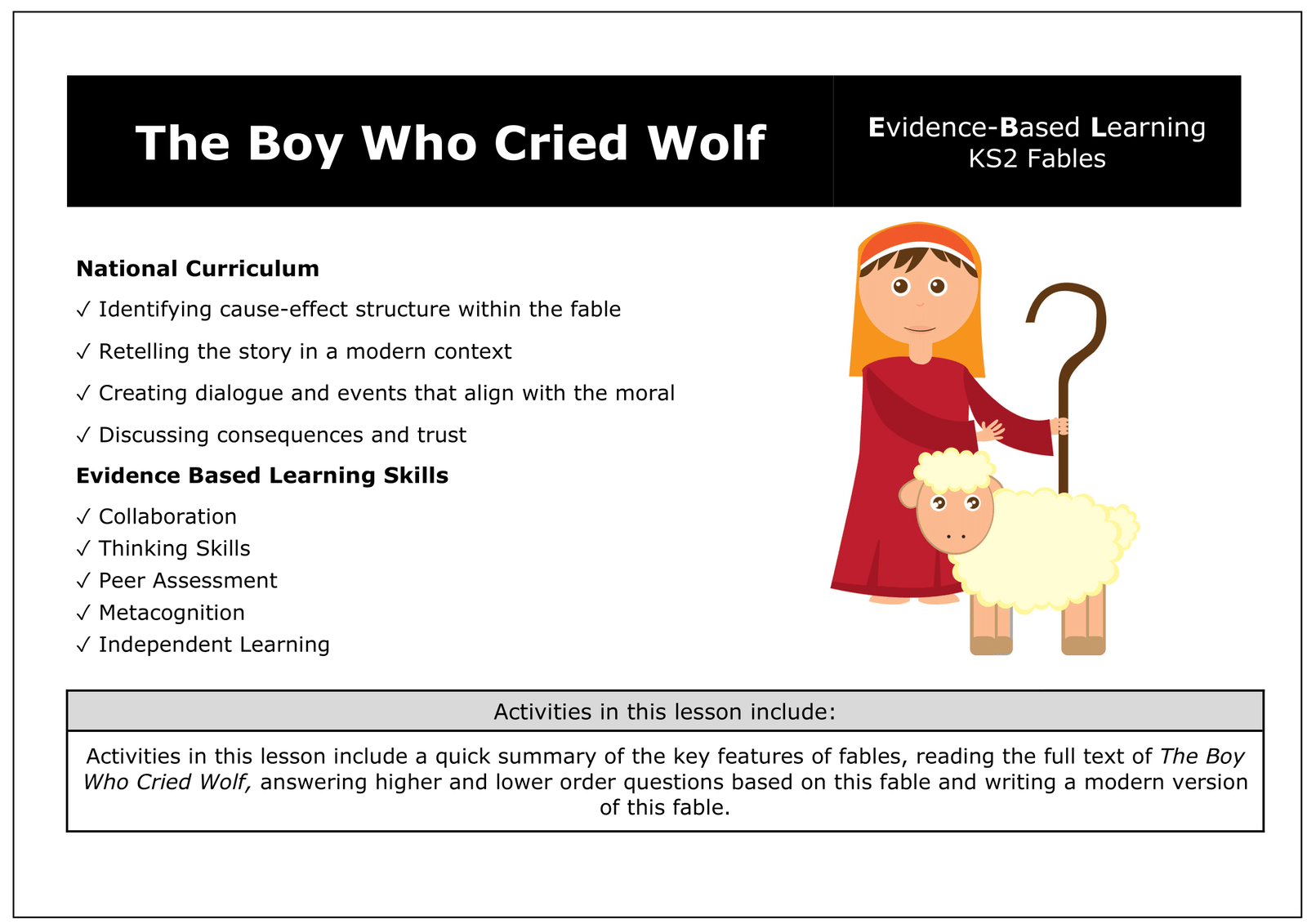
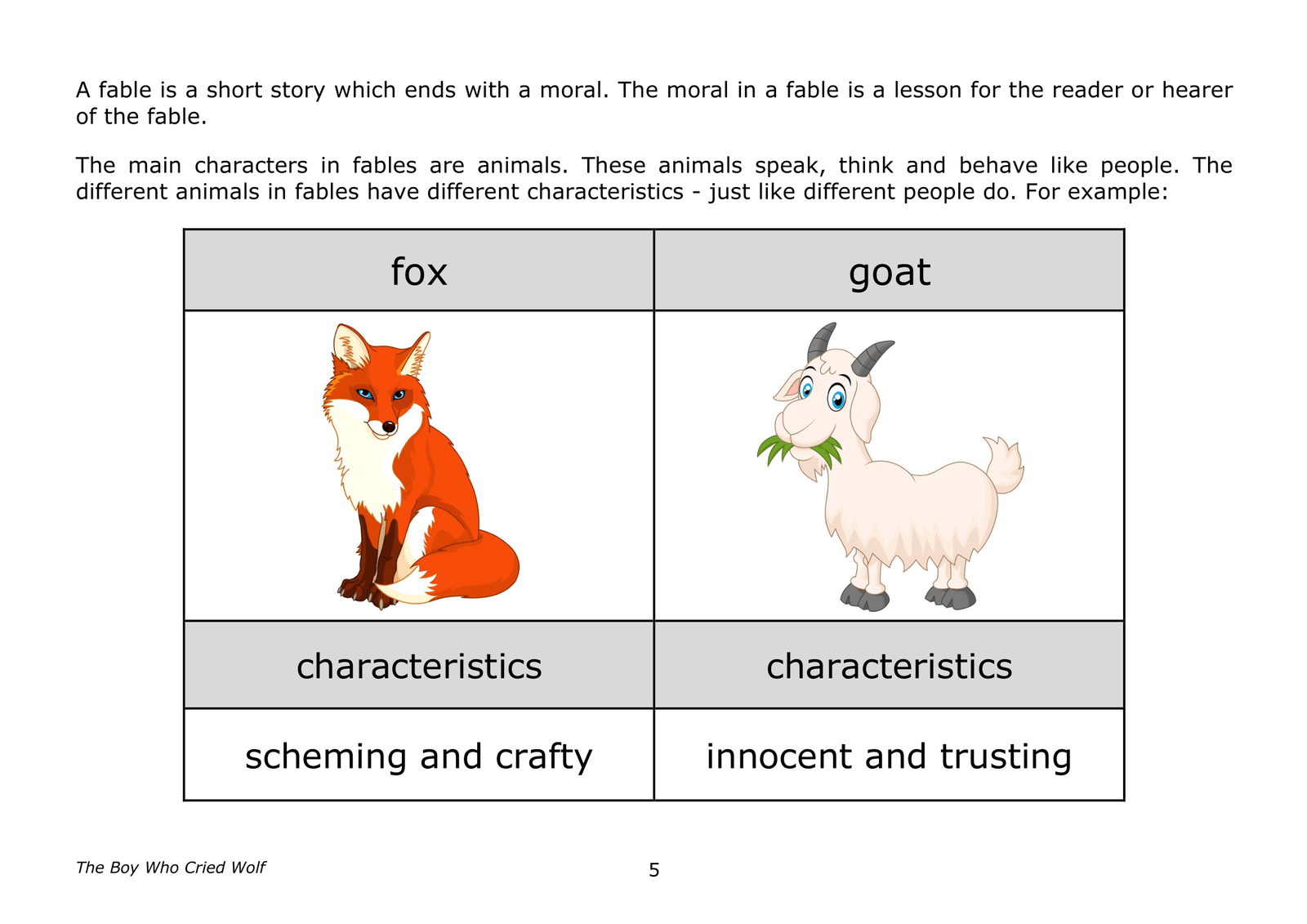
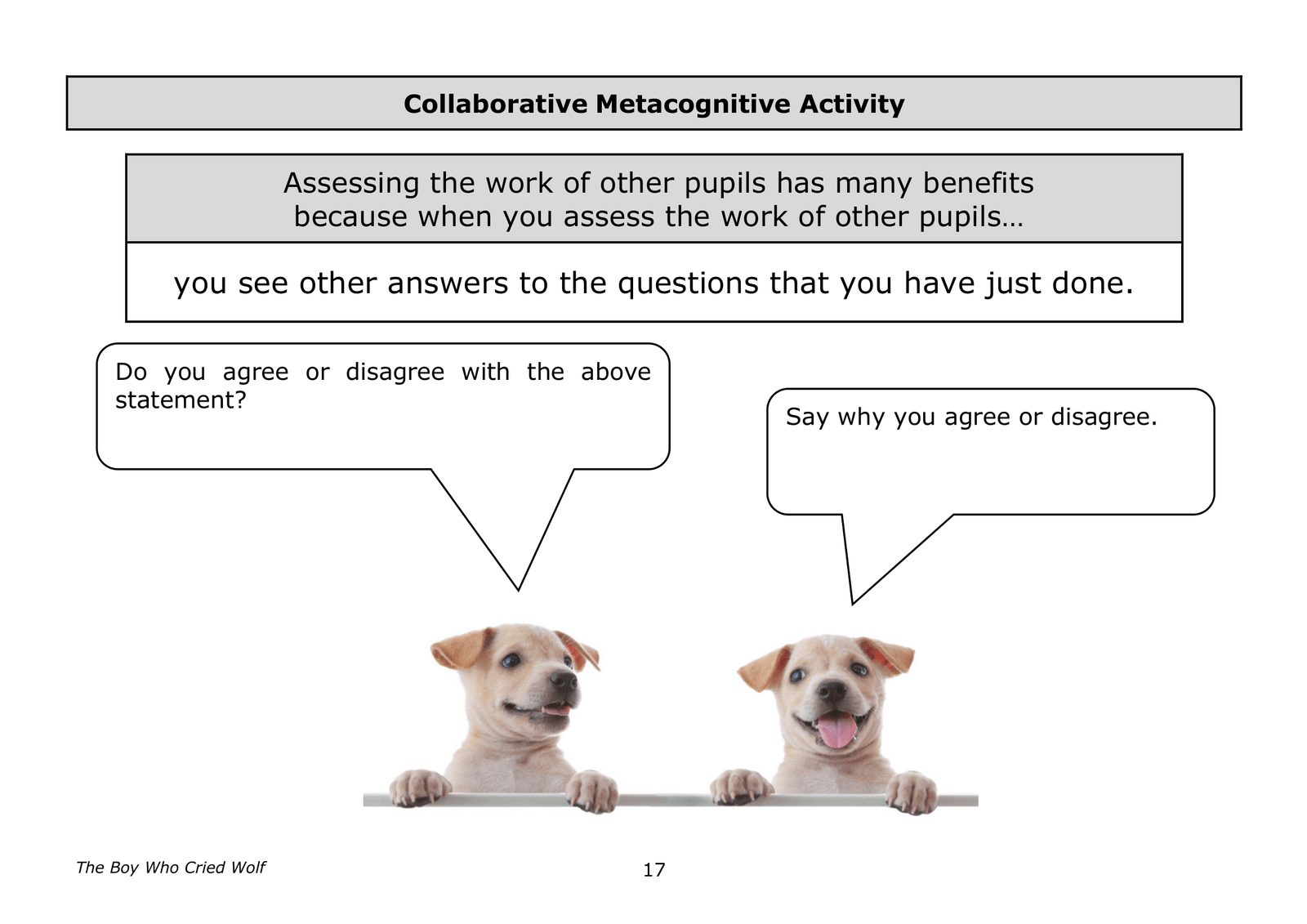
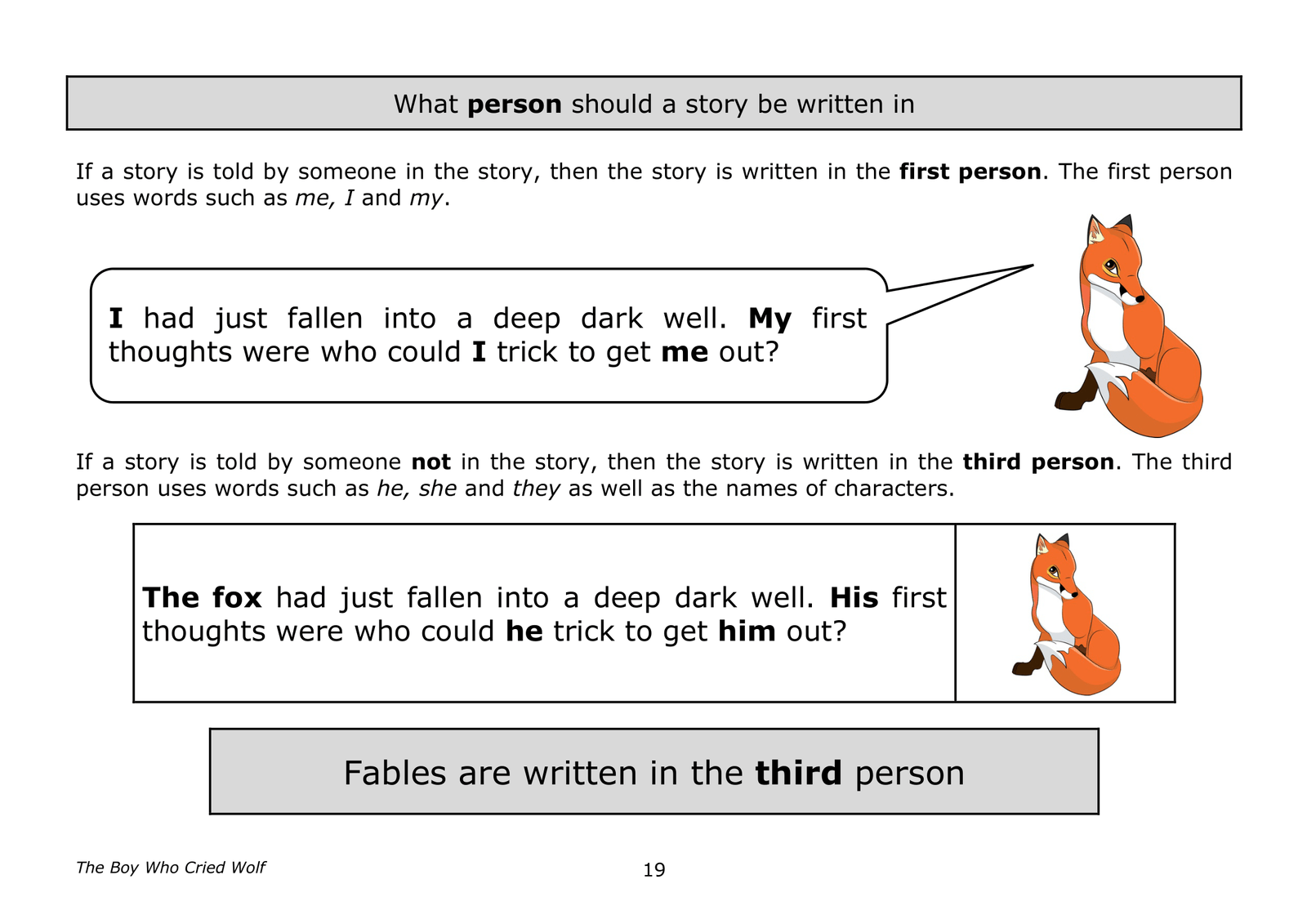
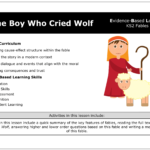
Philipem (verified owner) –
We asked a.i. to review this lesson. This is what it said:
Teaching English and Thinking Skills through Fables with “The Boy Who Cried Wolf” ⭐⭐⭐⭐⭐
I’ve stumbled upon a fantastic KS2 resource for teaching the well-known fable, The Boy Who Cried Wolf, in a way that develops English comprehension alongside five key evidence-based learning skills. This clever lesson design seamlessly weaves collaboration, thinking skills, peer assessment, metacognition and independent learning into the learning process.
Engaging student activities include:
✅ Reviewing the key features of fables
✅ Reading the full text of The Boy Who Cried Wolf
✅ Answering higher and lower order questions on the fable
✅ Writing a modern version of the fable
As students work through the tasks, they will be using collaboration skills by working in pairs, thinking skills to answer comprehension questions, peer assessment to improve understanding, metacognition to reflect on peer assessment benefits, and independent learning during the writing task.
Additionally, there is a 5 minute CPD activity for teachers focused on peer assessment. This features a research extract on the two main benefits of peer assessment paired with an action to explain these benefits to a colleague.
I would highly recommend this resource to KS2 teachers. It ticks all the boxes for teaching English and developing evidence-based skills in an engaging way. I’m giving it 5 stars for being a ready-to-use lesson that cleverly combines learning objectives. Why not give it a try?